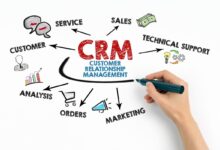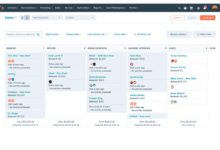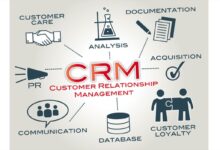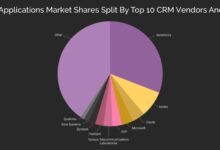Salesforce CRM Cost: 7 Shocking Truths You Must Know in 2024
Thinking about Salesforce CRM but unsure about the real Salesforce CRM cost? You’re not alone. Behind its powerful features lies a pricing structure that can surprise even seasoned buyers. Let’s break down exactly what you’ll pay—and why.
Salesforce CRM Cost: The Big Picture in 2024

When evaluating Salesforce CRM cost, it’s essential to understand that Salesforce doesn’t offer a one-size-fits-all pricing model. Instead, it uses a tiered subscription system based on features, user count, and add-ons. This flexibility is great for customization but can make budgeting tricky without proper research.
How Salesforce Pricing Works
Salesforce operates on a per-user, per-month subscription model. You pay for each licensed user, and the price varies depending on the edition you choose. The base editions range from Essentials to Unlimited, with specialized clouds like Sales Cloud, Service Cloud, and Marketing Cloud priced separately.
- Prices are typically quoted annually, though monthly billing is available.
- Most plans require a minimum number of users (usually 5–10).
- Discounts may be available for annual commitments or nonprofit organizations.
For the most accurate and up-to-date pricing, always refer to the official Salesforce pricing page.
Hidden Costs Beyond the Sticker Price
The listed price is just the beginning. Many companies underestimate the total Salesforce CRM cost because they don’t account for implementation, training, customization, and third-party integrations.
- Implementation: Can range from $5,000 to over $100,000 depending on complexity.
- Customization: Building custom workflows, dashboards, or apps often requires a developer or consultant.
- Training: User adoption is critical—poor training leads to wasted licenses.
- AppExchange Add-ons: Many businesses use third-party apps that add $10–$100+ per user per month.
“The sticker price of Salesforce is just the tip of the iceberg. The real cost lies in adoption, integration, and ongoing management.” — CRM Industry Analyst, Gartner
Salesforce CRM Cost by Edition: A Detailed Breakdown
Each Salesforce edition offers a different set of features and capabilities, directly impacting the Salesforce CRM cost. Let’s explore the most popular options.
Salesforce Essentials: Entry-Level for Small Teams
Priced at $25 per user per month, Salesforce Essentials is designed for small businesses with up to 10 users. It includes basic CRM features like contact management, lead tracking, and email integration.
- Ideal for startups and solopreneurs testing the waters.
- Limited customization and automation compared to higher tiers.
- No access to Salesforce Lightning or advanced reporting.
While affordable, Essentials may not scale well. Businesses often outgrow it within a year, leading to migration costs.
Sales Cloud: The Core of Salesforce CRM Cost
Sales Cloud is the most widely used Salesforce product. Its pricing starts at $25/user/month for Professional Edition and goes up to $300/user/month for Unlimited Edition.
- Professional: $75/user/month – Includes lead and opportunity management, forecasting, and basic automation.
- Enterprise: $150/user/month – Adds custom apps, advanced analytics, and API access.
- Unlimited: $300/user/month – Includes 24/7 support, sandbox environments, and premium features.
For a team of 10, that’s $9,000 to $36,000 per year—before extras. Learn more at Sales Cloud Pricing.
Service Cloud: Support-Focused Pricing
Service Cloud starts at $75/user/month (Professional) and goes up to $300/user/month (Unlimited). It’s built for customer service teams with features like case management, knowledge base, and omnichannel routing.
- Often used alongside Sales Cloud, doubling the per-user cost.
- Additional costs for chat, AI bots, and telephony integrations.
- Highly customizable but requires technical expertise.
If your business relies on customer support, Service Cloud is essential—but it significantly increases the total Salesforce CRM cost.
Marketing Cloud and Other Add-Ons: The Price of Expansion
As your business grows, you’ll likely need more than just Sales and Service Clouds. Marketing Cloud, Commerce Cloud, and Pardot add substantial costs to your Salesforce CRM cost.
Marketing Cloud: Email, Automation, and Analytics
Marketing Cloud is one of the most expensive Salesforce products. Pricing is not publicly listed and often requires a custom quote. However, estimates suggest a starting cost of $1,250/month for basic email marketing.
- Includes Journey Builder, Email Studio, and Social Studio.
- Costs scale with contact volume and feature usage.
- Implementation can take months and cost tens of thousands.
For mid-sized businesses, Marketing Cloud can easily exceed $20,000/year. Visit Marketing Cloud Pricing for a personalized quote.
Pardot: B2B Marketing Automation
Pardot, Salesforce’s B2B marketing automation tool, starts at $1,250/month for up to 10,000 contacts. Higher tiers support more contacts and advanced features like AI-driven lead scoring.
- Often bundled with Sales Cloud for lead nurturing.
- Requires integration work and ongoing management.
- Training is crucial—many teams underutilize its capabilities.
While powerful, Pardot can double your marketing tech spend overnight.
Commerce Cloud and Other Specialized Clouds
Commerce Cloud (for e-commerce), Experience Cloud (for portals), and Einstein AI are premium add-ons. Each requires a custom quote and often involves six- or seven-figure investments for enterprise clients.
- Commerce Cloud starts around $50,000/year for small implementations.
- Experience Cloud is often included in Enterprise or Unlimited editions.
- Einstein Analytics adds $50–$75/user/month for AI-powered insights.
These tools are game-changers—but only if your ROI justifies the Salesforce CRM cost.
Implementation and Consulting: The Silent Cost Drivers
One of the most underestimated aspects of Salesforce CRM cost is implementation. Even with a low license fee, poor setup can lead to wasted time, low adoption, and costly rework.
DIY vs. Hiring a Consultant
You can set up Salesforce yourself using Trailhead (Salesforce’s free learning platform). However, for anything beyond basic use, a certified consultant is highly recommended.
- Hourly rates for consultants range from $150 to $300+.
- Small implementations take 40–80 hours; enterprise projects can take 500+ hours.
- Many consultants offer fixed-price packages for common setups.
While DIY saves money upfront, it often leads to technical debt and inefficiencies down the line.
Implementation Cost Estimates by Company Size
The cost of implementation varies widely based on business complexity.
- Small Business (1–10 users): $5,000–$15,000
- Mid-Market (10–100 users): $15,000–$75,000
- Enterprise (100+ users): $75,000–$500,000+
These costs include data migration, workflow design, user training, and testing. Always budget for at least 20–30% of your annual license cost for implementation.
Choosing the Right Salesforce Partner
Salesforce has a global network of partners. Choosing the right one can save you time and money.
- Look for partners with industry-specific expertise.
- Check client reviews and case studies.
- Ask about post-implementation support and training.
Find a trusted partner through the Salesforce Partner Directory.
Customization and AppExchange: Enhancing Functionality at a Price
Salesforce’s true power lies in its flexibility. But every customization or third-party app adds to the Salesforce CRM cost.
Custom Development: When Off-the-Shelf Isn’t Enough
Many businesses need custom objects, workflows, or integrations. This requires Apex (Salesforce’s programming language) or Lightning components.
- Custom development can cost $100–$200/hour.
- Simple automations may cost $1,000–$5,000.
- Complex integrations (e.g., ERP, marketing tools) can exceed $20,000.
Always document requirements before development to avoid scope creep.
AppExchange: The Marketplace of Add-Ons
Salesforce AppExchange hosts over 5,000 apps. While many are free, premium apps can significantly increase your monthly bill.
- Popular apps like DocuSign, Mailchimp, and Zoom add $10–$50/user/month.
- Industry-specific apps (e.g., healthcare, real estate) may cost more.
- Some apps require one-time setup fees.
Before installing any app, evaluate its ROI and long-term cost. Explore options at Salesforce AppExchange.
Integration Costs with External Systems
Salesforce rarely works in isolation. Integrating with accounting software, email platforms, or legacy systems adds cost.
- Native integrations (e.g., Gmail, Outlook) are often free.
- Custom APIs or middleware (e.g., MuleSoft) can cost $10,000–$100,000.
- MuleSoft, Salesforce’s integration platform, starts at $4,000/month.
Plan integrations early to avoid technical bottlenecks.
Training and User Adoption: The Hidden ROI Factor
No matter how much you spend on Salesforce, it’s useless if your team doesn’t use it. Training and adoption are critical to maximizing ROI and minimizing wasted Salesforce CRM cost.
Why User Adoption Fails
Studies show that up to 50% of CRM implementations fail due to poor user adoption. Common reasons include:
- Complex interface without proper training.
- Lack of clear processes or accountability.
- Resistance to change from sales or service teams.
Without adoption, you’re paying for licenses that go unused—diluting your ROI.
Training Options and Costs
Salesforce offers multiple training paths:
- Trailhead: Free, self-paced learning with interactive modules.
- Official Training Courses: $1,000–$3,000 per course.
- Custom Training Programs: $5,000–$20,000 for company-specific sessions.
Investing in training pays off—teams that are trained use 2–3x more features.
Measuring and Improving Adoption
Use Salesforce’s built-in adoption dashboards to track login rates, record creation, and feature usage.
- Set KPIs for CRM usage (e.g., 90% login rate, 5 records/user/day).
- Assign CRM champions in each department.
- Run regular feedback sessions to address pain points.
High adoption means you’re getting full value from your Salesforce CRM cost.
Alternatives to Salesforce: Is the Cost Worth It?
Given the high Salesforce CRM cost, many businesses explore alternatives. While Salesforce leads in functionality, it’s not always the best fit for every budget.
Top Salesforce Competitors and Their Pricing
Several CRM platforms offer similar features at lower prices:
- HubSpot CRM: Free core features; paid plans start at $45/user/month.
- Zoho CRM: Starts at $14/user/month with robust automation.
- Pipedrive: $14.90/user/month, ideal for sales-focused teams.
- Microsoft Dynamics 365: Starts at $65/user/month, integrates well with Office 365.
These options may lack Salesforce’s depth but are more affordable and easier to adopt.
When to Choose Salesforce Despite the Cost
Salesforce is worth the investment if:
- You have complex sales or service processes.
- You need deep customization and scalability.
- You operate in a regulated industry requiring audit trails.
- You plan to use AI, analytics, or multiple clouds.
For growing enterprises, Salesforce’s long-term value often justifies the high Salesforce CRM cost.
When to Consider a Cheaper Alternative
If your team is small, your processes are simple, or your budget is tight, a lighter CRM may be better. You can always migrate to Salesforce later when you scale.
- Startups with under 10 users.
- Teams needing only contact and deal tracking.
- Organizations without IT or admin resources.
Saving $10,000/year on CRM can be reinvested in growth.
How to Reduce Your Salesforce CRM Cost Without Losing Value
You don’t have to sacrifice functionality to control costs. Smart strategies can lower your Salesforce CRM cost while maintaining performance.
Negotiate with Salesforce or a Partner
Salesforce rarely gives discounts publicly, but they’re often available.
- Ask for multi-year commitments (e.g., 20% off for 3 years).
- Nonprofits and educational institutions qualify for up to 50% off.
- Partners may offer bundled pricing with implementation.
Always negotiate—especially if you’re buying 50+ licenses.
Optimize User Licenses and Roles
Many companies over-license. Not every user needs a full Sales Cloud license.
- Use Light or Chatter licenses for read-only users.
- Assign lower-cost editions to support staff.
- Regularly audit inactive users and deactivate them.
This can save 20–40% on annual license fees.
Leverage Free Tools and Automation
Salesforce includes many free features that reduce reliance on paid apps.
- Use Process Builder and Flow for automation instead of paid tools.
- Leverage Reports and Dashboards instead of external BI tools.
- Use Einstein Discovery (included in some editions) for basic AI insights.
Maximizing native features cuts down on AppExchange expenses.
What is the starting price for Salesforce CRM?
The starting price for Salesforce CRM is $25 per user per month for the Essentials edition. However, most businesses using Sales Cloud start at $75/user/month for the Professional edition.
Is Salesforce CRM worth the cost?
For mid-sized to large businesses with complex processes, Salesforce CRM is often worth the cost due to its scalability, customization, and ecosystem. For small teams with simple needs, cheaper alternatives may offer better value.
What factors increase Salesforce CRM cost?
Key cost drivers include the number of users, edition choice, add-on clouds (like Marketing or Service Cloud), implementation services, third-party apps, and ongoing customization.
Can I reduce my Salesforce CRM cost?
Yes. You can reduce costs by negotiating pricing, optimizing user licenses, using free automation tools, avoiding unnecessary AppExchange apps, and investing in training to improve adoption and efficiency.
How much does Salesforce implementation cost?
Implementation costs vary: small businesses may pay $5,000–$15,000, mid-market companies $15,000–$75,000, and enterprises $75,000–$500,000+ depending on complexity and scope.
Understanding the true Salesforce CRM cost goes far beyond the monthly subscription. It includes licensing, implementation, customization, training, and ongoing management. While Salesforce offers unmatched power and flexibility, it demands a strategic approach to budgeting and adoption. By evaluating your needs, comparing alternatives, and optimizing usage, you can harness Salesforce’s potential without overspending. The key is not to avoid cost, but to maximize value at every stage.
Further Reading:



